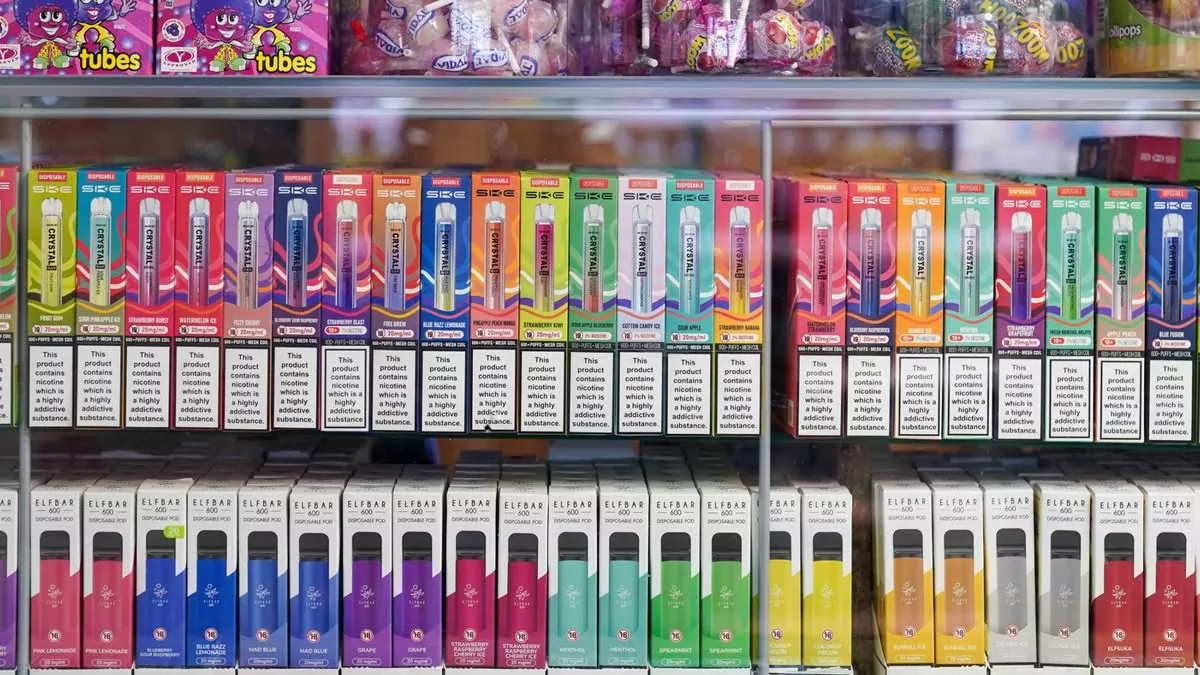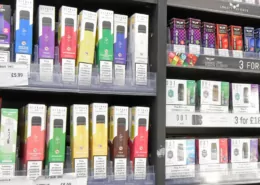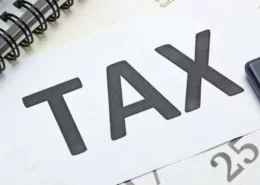UK Disposable Vape Ban: Your Essential Guide to the New Rules, Penalties & Travel
The landscape of vaping in the United Kingdom is on the cusp of a significant transformation. Starting this Sunday, June 1st, 2025, a nationwide ban on the sale and supply of single-use disposable vapes will come into effect across England, Scotland, Wales, and Northern Ireland. This landmark legislation, part of the broader Tobacco and Vapes Bill, aims to address two primary concerns: the alarming rise in youth vaping and the considerable environmental impact of these throwaway devices. With millions of Britons currently using vapes, and disposables having surged in popularity, understanding the ins and outs of this ban is crucial for consumers and retailers alike. This guide dives deep into what the ban means, the penalties for non-compliance, and how it affects travelers.
Why is the UK Banning Disposable Vapes?
The decision to ban disposable vapes stems from compelling evidence and growing public concern. For years, these often brightly colored, fruit-flavored, and relatively inexpensive single-use devices have been a common sight. However, their convenience has come at a cost.
Tackling the Youth Vaping Epidemic
A key driver for the ban is the “alarming rise in youth vaping.” Statistics have shown a dramatic increase in e-cigarette use among under-18s. For instance, vape usage in the UK reportedly increased by over 400% between 2012 and 2023, with an estimated 9.1% of Britons now using these products. More concerningly, a 2024 report indicated that 7% (approximately 390,000) of 11 to 17-year-olds in the UK were using vapes. The government believes that disposable vapes, with their appealing flavors, colorful packaging, and low price point, have been a “key driver” in making vaping attractive and accessible to this age group. This is despite it already being illegal to sell any vape product to anyone under 18.
The concern is that while vaping is widely considered by UK health authorities to be a significantly less harmful alternative for adult smokers trying to quit, its uptake by nicotine-naive young people can lead to nicotine addiction and unknown long-term health consequences. The ban aims to break this cycle and protect a new generation from potential harm.
Addressing Environmental Concerns
The environmental impact of disposable vapes is undeniable. These single-use plastic devices contain lithium-ion batteries and electronic components. According to government figures, an estimated 1.3 million disposable vapes end up in UK landfills each week, with reports suggesting up to 8 million are thrown away weekly, often improperly. That equates to roughly two disposable vapes being binned every second.
When these devices are discarded in general waste, they often end up in landfills or are incinerated, meaning valuable resources like lithium are lost. More dangerously, if damaged or crushed in waste collection or processing facilities, the lithium-ion batteries can cause fires, posing risks to waste management workers, firefighters, and the public. The government’s website states, “Littering spoils our communities, introduces harmful substances into the soil, rivers and streams, and causes harm to biodiversity.” The ban on single-use vapes is a direct measure to combat this significant and growing e-waste problem.
It’s important to note that the ban specifically targets “single-use” or “disposable” vapes. The government defines a reusable vape as a product that can be both refilled with e-liquid and recharged. If a vape cannot perform both these functions, it will be deemed illegal under the new law.
What Does the Ban Mean for Individuals? Will I Be Arrested for Having a Disposable Vape?
This is a key question for many current users. The short answer is no, you will not be arrested or pursued by the law simply for possessing a disposable vape for personal use after June 1st, 2025. The new legislation primarily targets the sale and supply of these devices by businesses, whether in physical stores or online.
Vape expert Markus Lindblad clarifies this: “Using single-use vapes after the ban isn’t going to become illegal, it’s buying or selling vapes that’s being restricted. Entering the UK with a disposable vape is only an offence if you intend to sell it on, so as long as it’s for personal use then you’re not breaking any laws.“
If you have disposable vapes after the ban and no longer want them, Sky News reports that shops that previously sold them will have an obligation to accept them back for proper disposal. This is part of ensuring these items don’t end up in landfills.

Punishments for Selling Disposable Vapes After the Ban
From Sunday, June 1st, 2025, it will be illegal for any business in the UK – whether a physical shop or an online retailer – to sell or supply single-use disposable vapes. The specific penalties for businesses caught violating this ban differ slightly across the constituent countries of the UK:
England and Wales:
- Initial Offense: Civil sanctions will be the first course of action. This can include a stop notice (ordering the business to cease illegal sales), a compliance notice, or an on-the-spot fine of £200.
- Recurring Offenses: For businesses that repeatedly flout the law, the penalties become much more severe, potentially leading to an unlimited fine and even a prison sentence of up to two years.
Scotland:
- Fixed Penalty Notice: Businesses caught selling or purchasing (for resale) disposable vapes can be issued with a fixed penalty notice of £200. This can be reduced to £150 if paid within 14 days.
- Escalating Fines: Each subsequent time a business is caught selling disposable vapes, the fine can rise by £200.
- Court Action: If a business does not accept the fixed penalty notice, or if the enforcement officer believes the fine is insufficient punishment for the offense, the case can go to court. This could result in a fine of up to £5,000 and/or a prison sentence of up to two years.
Northern Ireland:
- No Civil Sanctions (Initially): Currently, the framework for Northern Ireland does not specify initial civil sanctions like fixed penalty notices in the same way as England, Wales, and Scotland.
- Court Conviction: If anyone is found violating the new law by selling or supplying disposable vapes, they could receive a fine of up to £5,000 upon summary conviction in a magistrates’ court.
- Repeat Offenses: For repeated violations, offenders can be sentenced to up to two years in prison.
These penalties underscore the government’s serious intent to enforce the ban and transition the market away from single-use products.

Traveling with Vapes: What You Need to Know
Bringing Disposable Vapes Back to the UK After Holiday
If you’re holidaying in a country where disposable vapes are still legally sold after June 1st, 2025, you can purchase and use them there according to local laws. The question then arises: can you bring them back into the UK for personal use? As Markus Lindblad explained, bringing a disposable vape into the UK for your own personal consumption is not an offense. The UK ban targets the *sale and supply* within the UK, not personal possession of items legally acquired abroad for personal use.
Taking Your Vape on a Plane: General Airline Rules
Whether it’s a disposable or a reusable vape, airlines have strict rules for carrying these devices:
- Carry-On Luggage Only: Vape devices and e-cigarettes, due to their lithium-ion batteries, must be packed in your carry-on luggage. They are strictly prohibited in checked-in bags because of the fire risk associated with these batteries in the cargo hold. Airport security can confiscate items improperly packed, and you might be called to open your checked luggage. Markus Lindblad notes a maximum of 20 batteries is often cited, but always check with your specific airline.
- No Vaping Onboard: Just like traditional smoking, vaping is strictly illegal on all commercial flights.
- E-Liquids: Refills and e-liquids must also be kept in your hand luggage and are subject to the standard 100ml maximum bottle size rule for liquids. They should be placed in a clear, resealable plastic bag.
- Check Destination Laws: Crucially, while you can take a vape on a plane departing the UK (in carry-on), you must check the vaping laws of your destination country. Some countries have total bans on vapes with severe penalties, including large fines or even imprisonment. Popular European destinations like Belgium and France have also banned disposable vape sales. In the US, vaping laws vary significantly between states, with some cities like San Francisco having banned all vape product sales, and states like California and New Jersey having flavor bans.
Markus Lindblad suggests that if you’re unsure about destination rules or need a nicotine fix during a flight where vaping is banned, nicotine pouches, which can be used discreetly, could be a suitable alternative.
The Future: Reusable Vapes and a “Smokefree Generation”
The ban on disposable vapes is a key component of the UK’s broader “Tobacco and Vapes Bill.” This legislation also includes measures aimed at creating a “smokefree generation” by progressively raising the age of sale for tobacco products. Starting in January 2027, individuals born on or after January 1, 2009 (who will be turning 18 from that year onwards) will no longer be able to legally purchase tobacco products. E-cigarettes will also face further restrictions on sales to young people under 18 and sales from vending machines.
The clear direction is towards encouraging adult smokers who use vapes to switch to less harmful alternatives to transition to reusable, refillable systems, while simultaneously making all nicotine products, especially those most appealing to youth, harder for young people to access. The disposable vape ban is a significant step in this multifaceted public health and environmental strategy.
- HHC Vapes: What Are They & Are They Safe? - July 31, 2025
- Cannabis and Vape Shop Workers Rank Happiest in Nation - July 31, 2025
- Richmond, VA, Restricts New Vape & Tobacco Shop Locations - July 31, 2025









